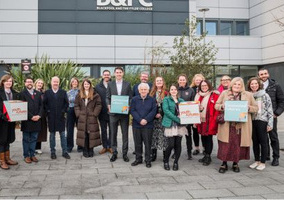Fewer voluntary organisations are interested in delivering public service contracts than in previous years, according to research published today.
The latest Third Sector Trends report, which received 8,680 responses from voluntary, community and social enterprise (VCSE) organisations, found that while political enthusiasm to involve the voluntary organisations in the delivery of public services was strong, VCSEs’ interest has continued to decline.
A lower proportion of VCSEs of all sizes said they were bidding for or delivering public services in 2025 compared to 2022 and 2019.
Some 64% of respondents from the largest VCSEs (income from £5m-£25m) were involved in bidding for or delivering public service contracts between 2016 and 2019, but that commitment declined to 54% in 2022 after the Covid-19 pandemic and has fallen further since to 42% in 2025.
Meanwhile, a decade ago, 23% of voluntary organisations generally were “ambivalent” about getting involved in public service contracts due to lack of information, the need for support or perception or barriers to engagement; only 14% feel that way in 2025.
The main reason that VCSEs cited for withdrawing from contracting was that contract values were too low to meet the cost of delivery, while pressures have been exacerbated with hikes to the national minimum wage and employers’ national insurance contributions.
Business support for charities
The research, which has surveyed the sector every three years since 2010, finds that support for charities from businesses has somewhat recovered after a post-pandemic slump.
In 2016, 39% of VCSEs were receiving “useful” financial support from businesses, but this dropped to 20% in 2022 before rebounding to 33% in 2025.
Meanwhile, the percentage of voluntary organisations receiving pro-bono support from businesses has decreased from 28% in 2016 to 20% in 2025.
Employer-supported volunteering was provided to 23% of voluntary organisations in 2016 and 2019, but that support fell to 17% in 2022 and remained at that level in 2025.
Decline in formal partnerships
The report says that while the “collaborative culture” of the voluntary sector has become more selective, it nevertheless remains strong.
Some 72% of respondents said that they were engaged in “informal” and “complementary” relationships with other voluntary organisations and groups (versus 73% in 2022), with another 9% aspiring to work this way.
Meanwhile, 62% of organisations said that they continued to “collaborate closely but informally” with others in the VCSE sector, down from 65% in 2022.
However, the number of VCSEs working in “formal partnership” arrangements has fallen from 34% in 2022 to 28% in 2025 and another fifth are interested in doing so.
Some 53% of sector organisations said they were currently disinterested in formal partnership working (up from 47% in 2022).
Relationship with public sector
The report says that the present government has adopted “a more conciliatory stance” towards the sector than the Conservative administration, particularly on charities’ rights to campaign and lobby.
However, the percentage of VCSEs agreeing that they engage in campaigning (48%) or lobbying (42%) to further the interests of beneficiaries remained similar to previous years.
Moreover, the extent to which voluntary organisations felt valued (87%), informed (64%) and involved (42%) by local public sector organisations fell compared with previous years.
The report notes that the decline may be related to “raised expectations” in the context of government policy drivers associated with the local devolution of decision-making.
Meanwhile, 56% of respondents broadly agreed that opportunities for effective collaborative working with the likes of local councils and the NHS have increased, while 31% agreed that policy makers now give more notice about new initiatives.
Most respondents (61%) disagreed that policymakers have become more receptive to their arguments.












